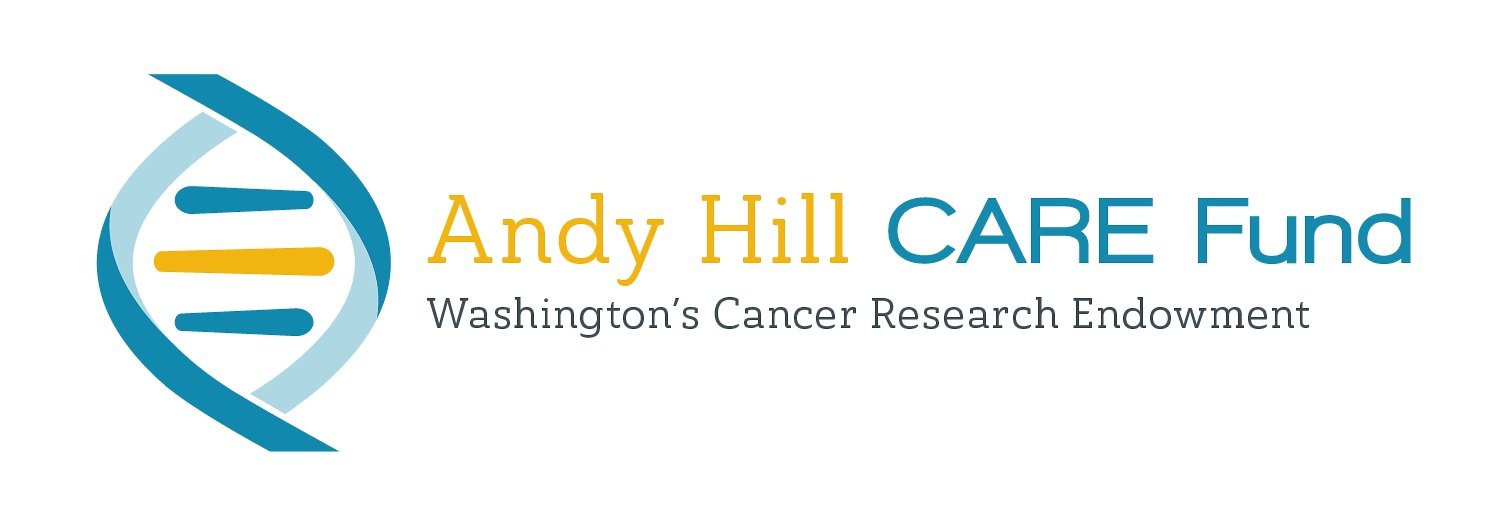First Grants Awarded to Bring World-Class Researchers to Washington state
The Cancer Research Endowment (CARE) Fund, a public-private partnership that supports cancer research in Washington, announced today its first grant awards to recruit world-class researchers to cancer research organizations in the state.
Four $500,000 grants will go to three different Washington institutions as part of the CARE Fund’s Distinguished Researchers program. The $2.5 million in awards of public funds to support recruitment and start-up packages will be matched by more than $6 million in non-state funds committed by the host organizations.
Grant applications for the recruitment of Distinguished Researchers were independently reviewed by the American Association for the Advancement of Science (AAAS) and those researchers recommended for funding were approved by the CARE Board. The first cohort of Distinguished Researchers was recruited from California Institute of Technology (Caltech), Columbia University, Massachusetts General Hospital, and University of California at San Francisco.
“This is an incredibly talented and diverse group of researchers who will advance cancer research and health outcomes in our state,” said Dr. Frederick Appelbaum, chair of the CARE Board and executive vice president and deputy director of Fred Hutchinson Cancer Research Center. “We know that cancer research breakthroughs occur through the work of talented and well-resourced scientists, and the CARE Fund is pleased to support the recruitment of these distinguished researchers. With each of them will come additional research dollars, laboratory and other jobs, and the promise of real cancer research progress.”
The first five CARE Distinguished Researchers are:
Dr. Heather Greenlee, Fred Hutchinson Cancer Research Center. Dr. Greenlee is a Doctor of Naturopathic Medicine (ND) with a doctorate in epidemiology. As a population scientist, her research focus is primarily on cancer survivorship with an emphasis on the issue of obesity in cancer survivors – a research topic with high significance. Her research portfolio currently includes funded studies examining a dietary intervention among Hispanic women with breast cancer and studying factors associated with cardiovascular outcomes in breast cancer survivors. Her behavioral intervention research on cancer survivorship in racial and ethnic minority populations was deemed to have high significance and high potential for translation into patient care.
Dr. Mark Headley, Fred Hutchinson Cancer Research Center. Dr. Headley’s novel research program demonstrates strong potential for high impact in understanding the biology of lung metastasis. His research program, focused on interactions between the pulmonary immune environment and burgeoning metastases to the lung, has yielded a recent first-author publication in Nature, an indication that this research focus is an important area with high significance. His work seeks to clarify the mechanisms by which myeloid immune cells variably promote or defend against cancer. The findings from which, have significant translational potential and are anticipated to guide a new generation of metastasis-targeted interventions.
Dr. James Heath, Institute for Systems Biology. Dr. James Heath has been recruited as President of the Institute for Systems Biology (ISB) after spending the past 15 years directing large National Cancer Institute funded programs as a Professor at the California Institute of Technology. He has a track-record of success in academics, teaching, administration, and entrepreneurship. His laboratory works to develop new technologies enabling novel cancer immunotherapies. His record of high-impact productivity across a broad spectrum of scientific domains relevant to cancer research is exceptional.
Dr. Lev Silberstein, Fred Hutchinson Cancer Research Center. Dr. Silberstein’s work focuses on secreted factors that regulate the behavior of normal and malignant stem cells in the bone marrow. His research program has translational implications for addressing the important clinical problems posed by bone marrow failure, myelodysplasia, and related syndromes.
A fifth Distinguished Researcher grant has been awarded to Washington State University to help recruit a highly-regarded well-funded researcher.
